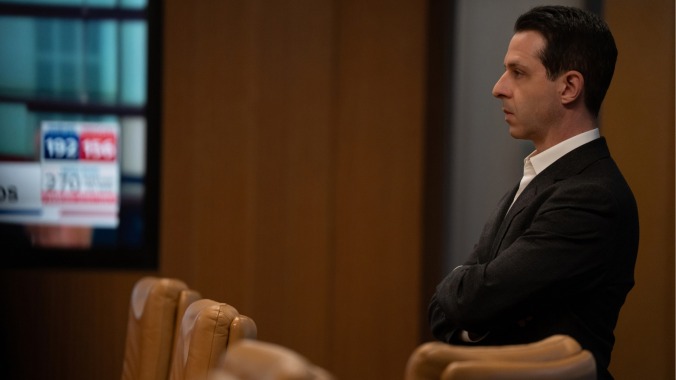How would Succession's burned ballots catastrophe actually play out? An election commissioner weighs in
State of Wisconsin Elections Commissioner Ann Jacobs recently broke down Milwaukee-gate

Note: This article contains spoilers for Succession season 4, episode 8
In its third-to-last episode ever, Succession’s central heirs ran more rampant than ever, essentially deciding an election in favor of Jeryd Mencken, a far-right candidate whose thinly-veiled fascist beliefs weren’t enough to dissuade Kendall (Jeremy Strong) and Roman (Kieran Culkin) from handing him the keys to the castle. Pivotal in the decision were 100,000 missing absentee ballots, which were destroyed in a suspicious fire at a Milwaukee polling center.
“In like 1960 and in the year 2000, in 2016, these unbelievably close election moments kind of keep on coming in the U.S.,” series creator Jesse Armstrong shared during an “Inside the Episode” segment released on HBO Max. “So it felt legitimate to have another one.”
So how would the nail-biter scenario that ended in a Mencken win play out in real life? State of Wisconsin Elections Commissioner Ann Jacobs has some ideas. On Monday, Jacobs shared a thread on Twitter outlining her theories, and breaking down what Succession got right and wrong when crafting Milwaukee-gate.
According to Jacobs, Succession hit a few nails on the head when crafting its Milwaukee ballot-burning catastrophe: the most obvious example being, “fire destroying ballots is bad.” Jacobs also confirmed that having a central count in Milwaukee does mean that all absentee ballots are processed in one place on one day, making the possibility of a well-placed fire genuinely changing political tides a very real one.
However, Jacobs pointed out, the idea that those burned ballots would be impossible to recover isn’t exactly true: in Milwaukee, absentee ballots are logged via a barcode scanner, which allows absentee voters to track their ballots and confirm when they’ve arrived. This also means that, in the event that paper ballots were lost, election officials would be able to find out whose ballots were missing more easily than Succession suggests.
After her initial thread gained some online traction, Jacobs expanded on her comments during a live interview with Wisconsin’s ABC 12 News at 4. The way Jacobs sees it, a real-life epilogue to Succession’s big election night would involve the courts ultimately deciding how to properly consider voters whose ballots were lost.
“My suspicion is we would wind up with some sort of amended deadline for resubmitting ballots or allowing people to vote,” she says. “That certainly would be my hope because if this were to happen, we wouldn’t want to see 100,000 people completely disenfranchised.”
New Succession episodes (of which there are only two left!) air Sunday nights on HBO at 9:00 P.M Eastern.